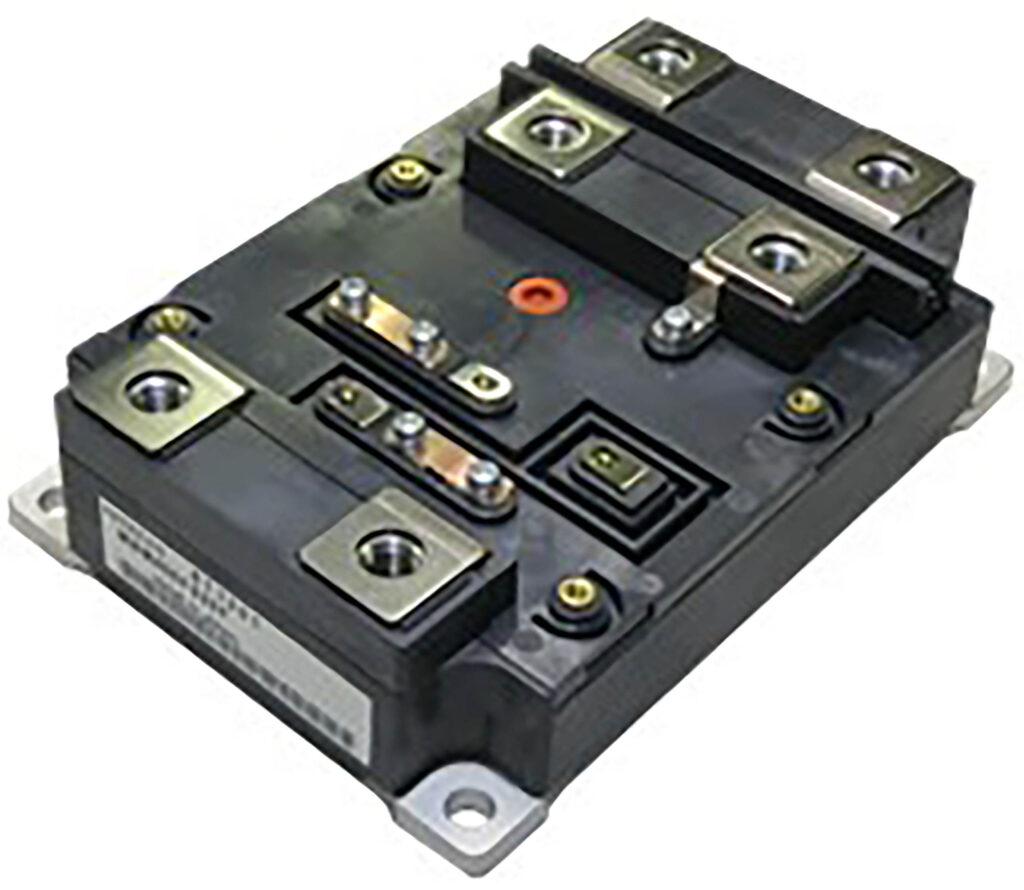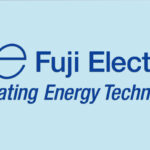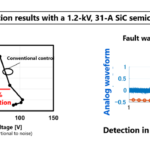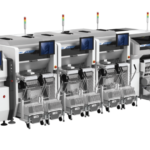ASIA ELECTRONICS INDUSTRYYOUR WINDOW TO SMART MANUFACTURING
Full-SiC Module Offers Lower Switching Loss
Hitachi Power Semiconductor Devices, Ltd. (HPSD) has developed three new products of highly durable 1.7kV full-silicon carbide (SiC) module. They feature low-loss property, realizing 30 percent reduction in switching loss of existing products. Copper (Cu)-sintering die-bonding technology helped achieve this, as it boast three times more power-cycling durability than using conventional solder die-bonding technology.
The company plans to make available samples of the product this January. These products suit traction and renewable energy power generation systems. HPSD also supports to improve the energy efficiency of highly reliable social infrastructure with the full-SiC modules, thus contributes to a carbon-free society.

Higher Energy Efficiency
Power semiconductor devices used for various social infrastructures are required to have more energy efficiency to realize a carbon-free society. Among them, achieving low-loss property is relatively easy with SiC power devices as they have better electrical breakdown strength than silicon devices. This makes them suitable for reducing the power consumption of electric power converters.
Cu-Sintering Technology
Since the release of full-SiC module in 2018, HPSD has supplied full-SiC modules to Japan’s traction market.
In 2019, HPSD began to provide the full-SiC module products that adopt Cu-sintering technology. The new bonding technology is used to attach SiC dies with Cu electrode to have better power-cycling durability. This turned out to be three times more than the modules adopting conventional solder die-bonding technology. Based on the Cu-sintering technology, the module adopts a newly designed low temperature coefficient gate resistor to reduce the loss accompanying On/Off switching operation of SiC devices by 30 percent compared with existing products.
Toward Carbon-Free Society
HPSD will supply this new full-SiC modules not only to traction inverters, but also to power converters of renewable energy power generation systems.
So far, the company has been supplying the modules to traction and EVs. Moreover, HPSD is accelerating its development activities for broad range of social infrastructures such as electric power systems and data centers toward the realization of carbon-free society. The company will strive to realize a carbon-free society by developing and delivering the power semiconductor devices that help cut down the power consumption as well as CO2 emission of social infrastructures.




